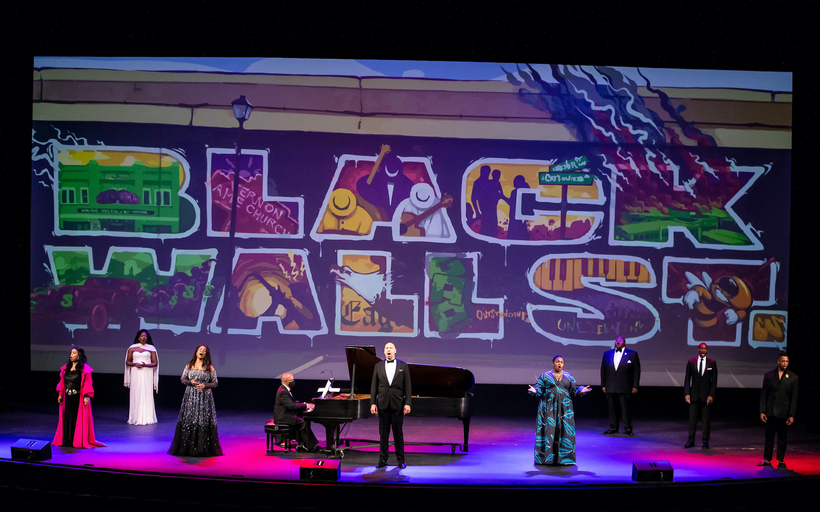Time was, opera reflections of the Black experience pretty much began with Aida and ended with Otello. Then, around 1910, the ragtime king Scott Joplin came along with an enchantment called Treemonisha, but it wasn’t until 1972 that the world took notice. By that time, sad to say, Joplin had been in his grave for more than 50 years—while Porgy and Bess had been collecting royalties for the George Gerwshin estate for nearly 40.
With X, The Life and Times of Malcolm X in 1986, Amistad in 1997, and the Pulitzer Prize-winning The Central Park Five in 2019 (featuring a tenor racist blowhard named Donald Trump), the composer Anthony Davis has carved out a place for Black American history on opera stages across our nation. He is now at work on Fire Across the Tracks: Tulsa 1921, commissioned by the Tulsa Opera to commemorate the notorious Black Wall Street Massacre in the Tulsa district of Greenwood, a bloodbath that left 35 blocks of the richest Black American community of its time in ruins. For a sneak peek, check out the premiere of the ominous 10-minute monologue “There are many trails of tears,” delivered with fierce concentration by the bass-baritone Davóne Tines on the Tulsa Opera’s pandemic recital program Greenwood Overcomes, Celebrating Black Composers & Opera Stars. Of some two dozen selections by 23 living Black composers (winnowed down from a field of 300!), only this one addresses the long-taboo subject.

For the rest, a starry roster of Black opera singers presents a free-wheeling playlist in kaleidoscopic styles, including eight world premieres, all expertly accompanied by Howard Watkins, a chameleon of the piano. Among the art songs, a surprising number are in French, with a decidedly French musical accent. Folk songs and spirituals are heard in recent arrangements, some traditional in feeling, some harmonically adventurous. There’s an inspirational ballad or two that would bring houses down on Broadway.
Denyce Graves, a celebrated Metropolitan Opera Carmen with contralto notes of astonishing authority, dispenses from-the-heart expression along with old-school grandezza, as does her Met colleague Leona Mitchell, remembered as Luciano Pavarotti’s prima donna in prime evenings of Verdi. In Issachah Savage, we encounter an astonishingly sweet-voiced Heldentenor on the rise. The other new faces include the soulful mezzo-soprano Krysty Swann, the commanding basso Kevin Thompson, and Noah Stewart, a tenor of lean, smoky timbre that makes its finest mark in moments of intimacy. And then there’s Leah Hawkins—serially irresistible, especially in the folk song “Nobody’s Business (But Me Own).” Ignore the sanitized subtitles and listen to the lyrics very carefully. The sassy Jamaican patois pays political correctness no never-mind at all.
Recorded on May 1 and 2, Greenwood Overcomes is available on YouTube through May 31
Matthew Gurewitsch writes about opera and classical music for AIR MAIL. He lives in Hawaii

